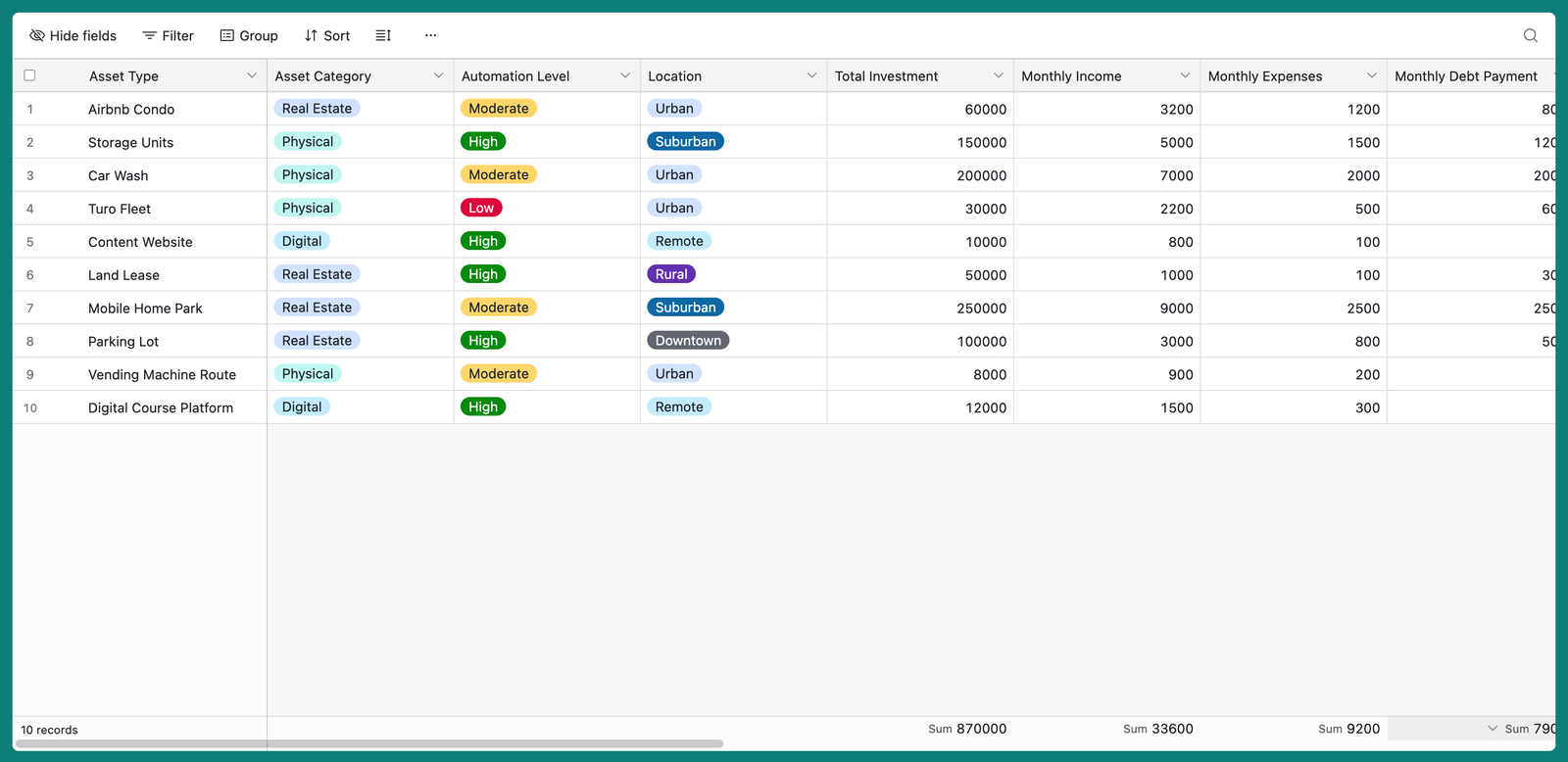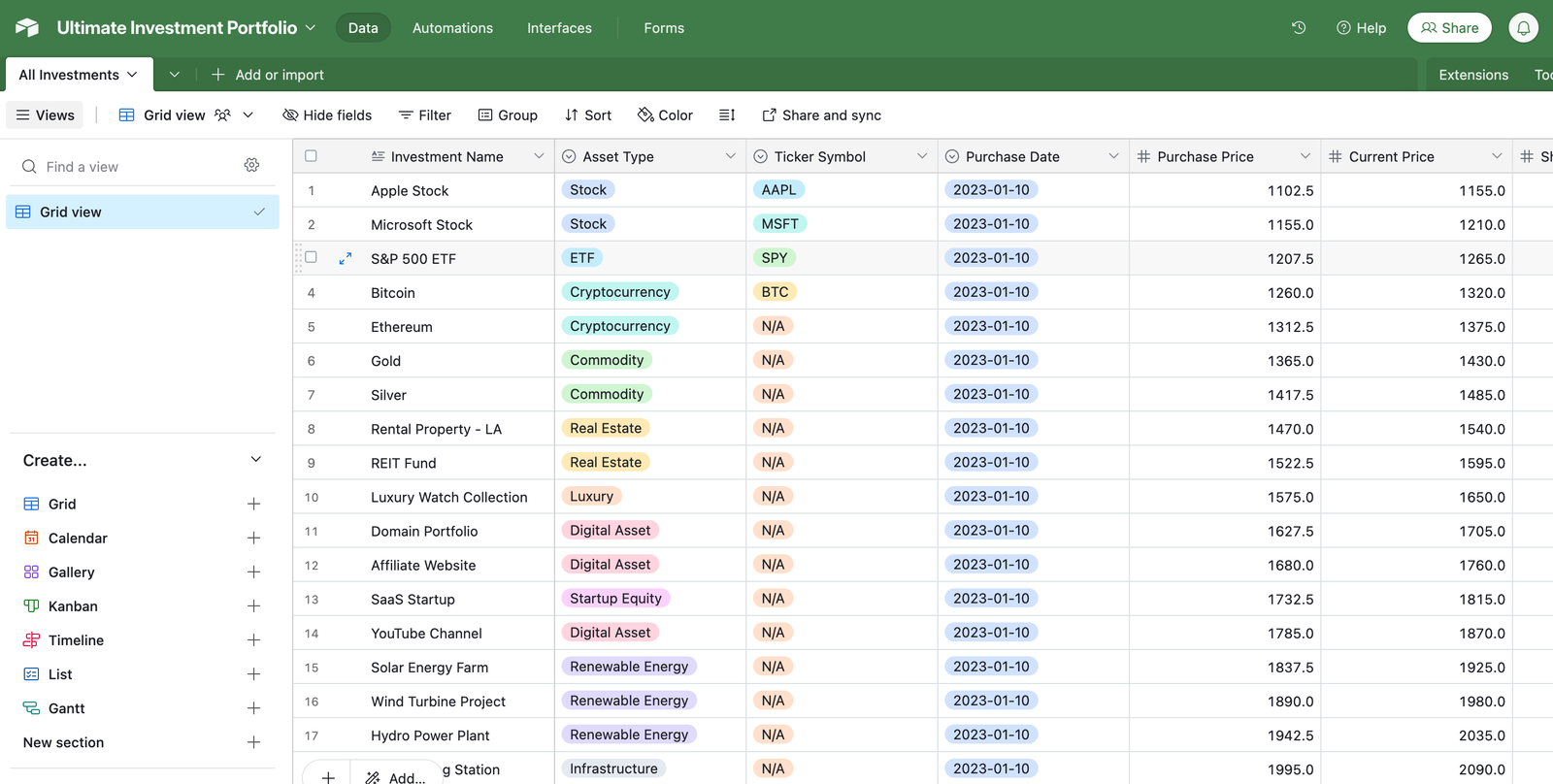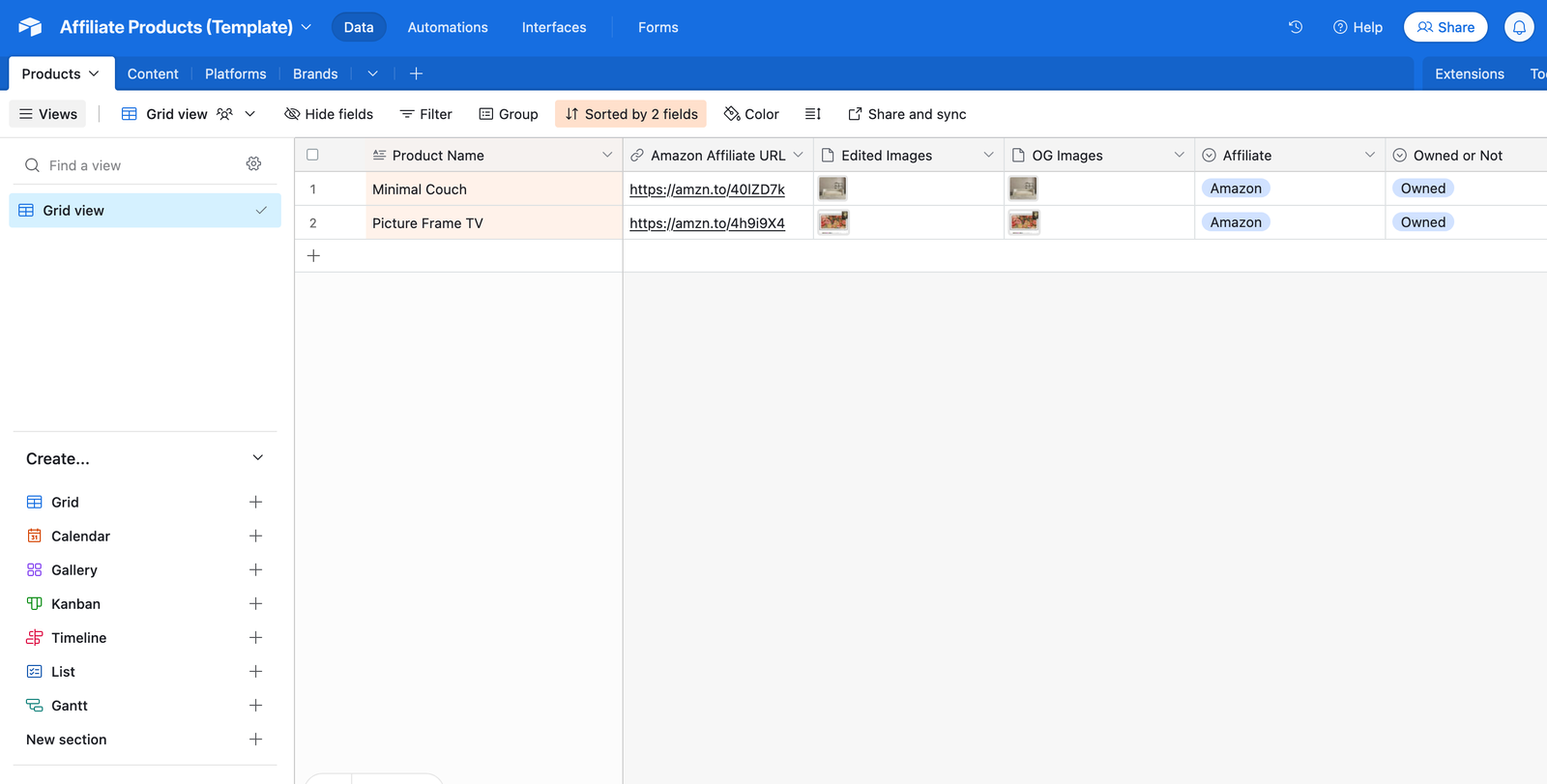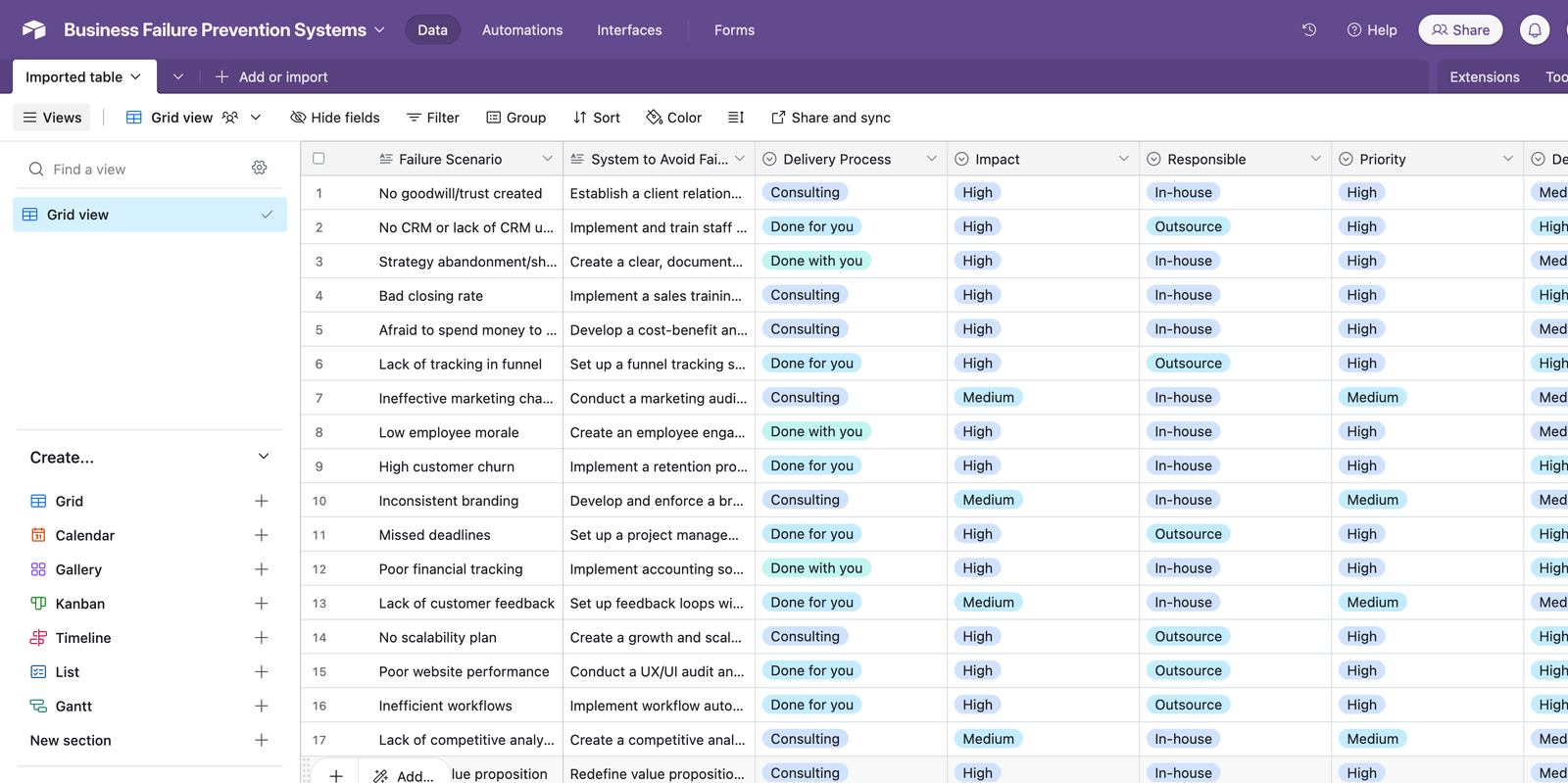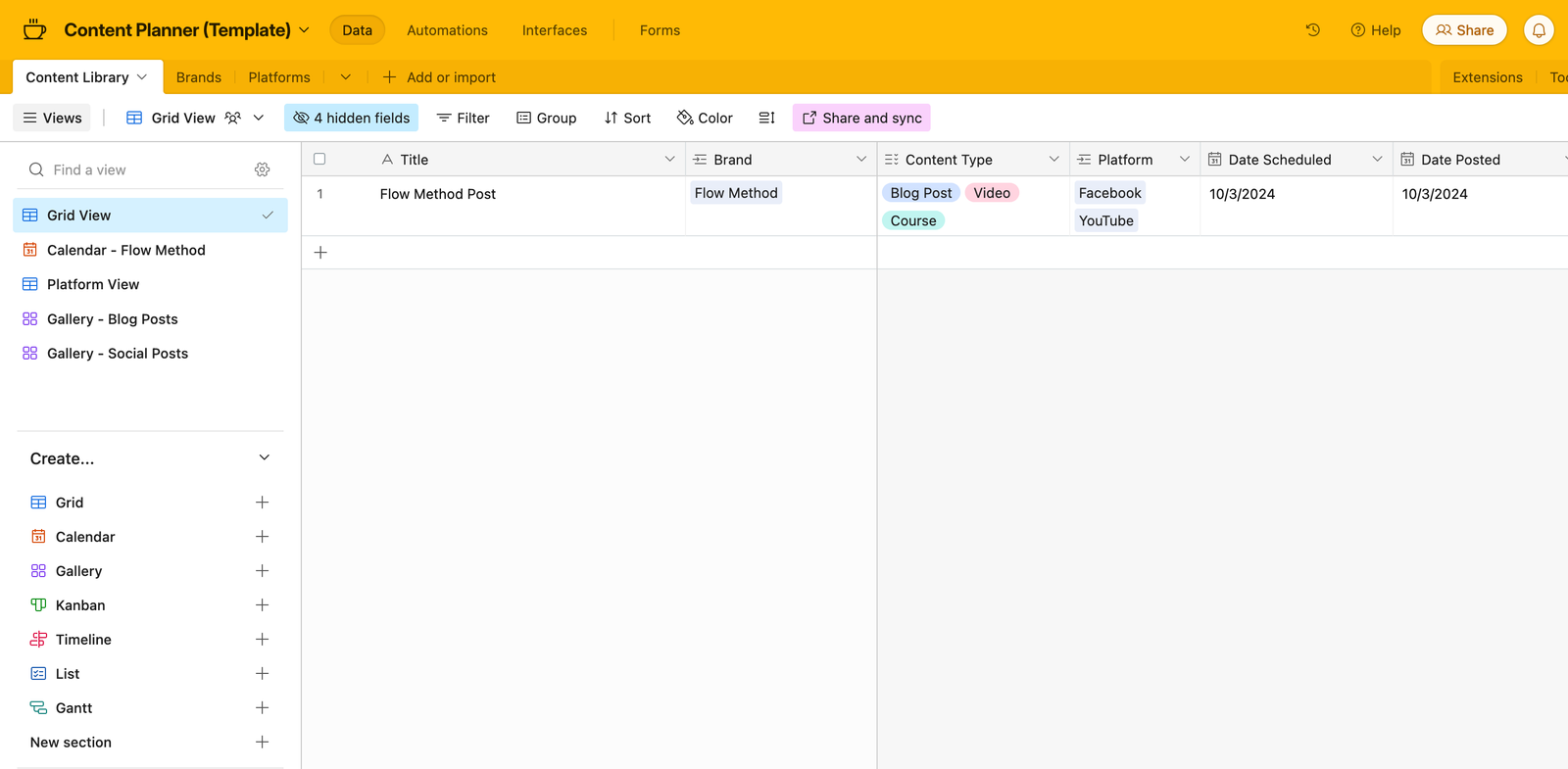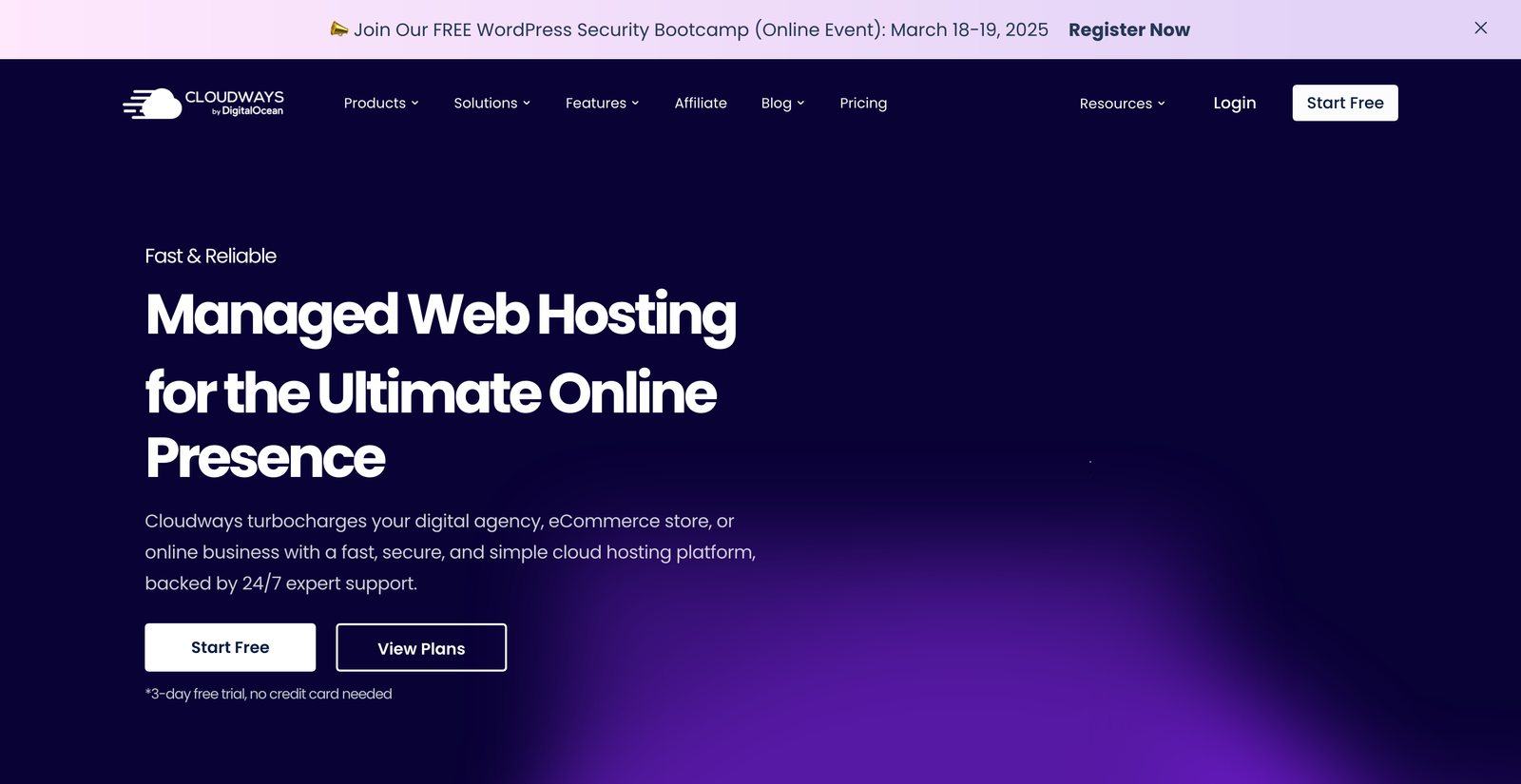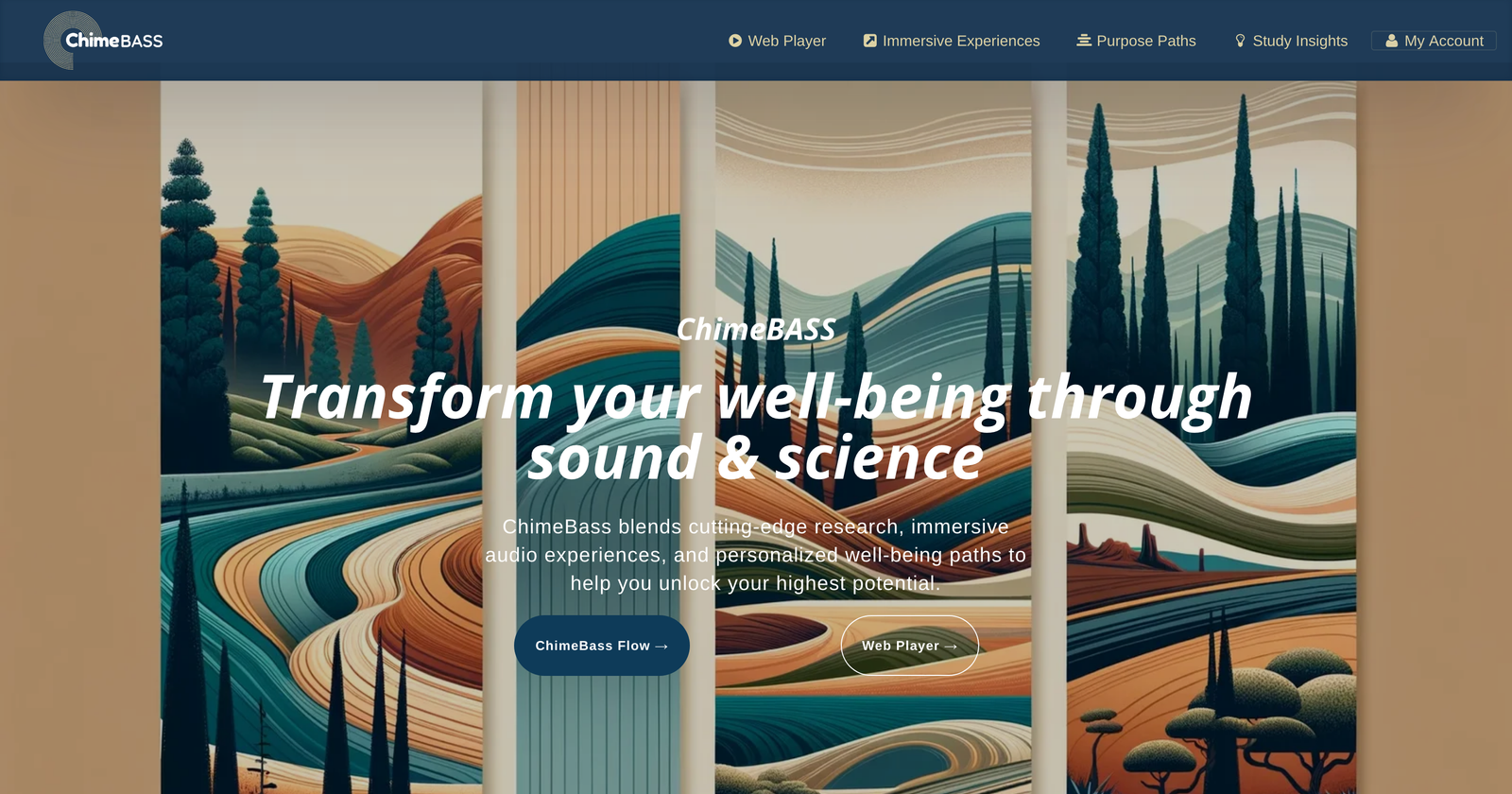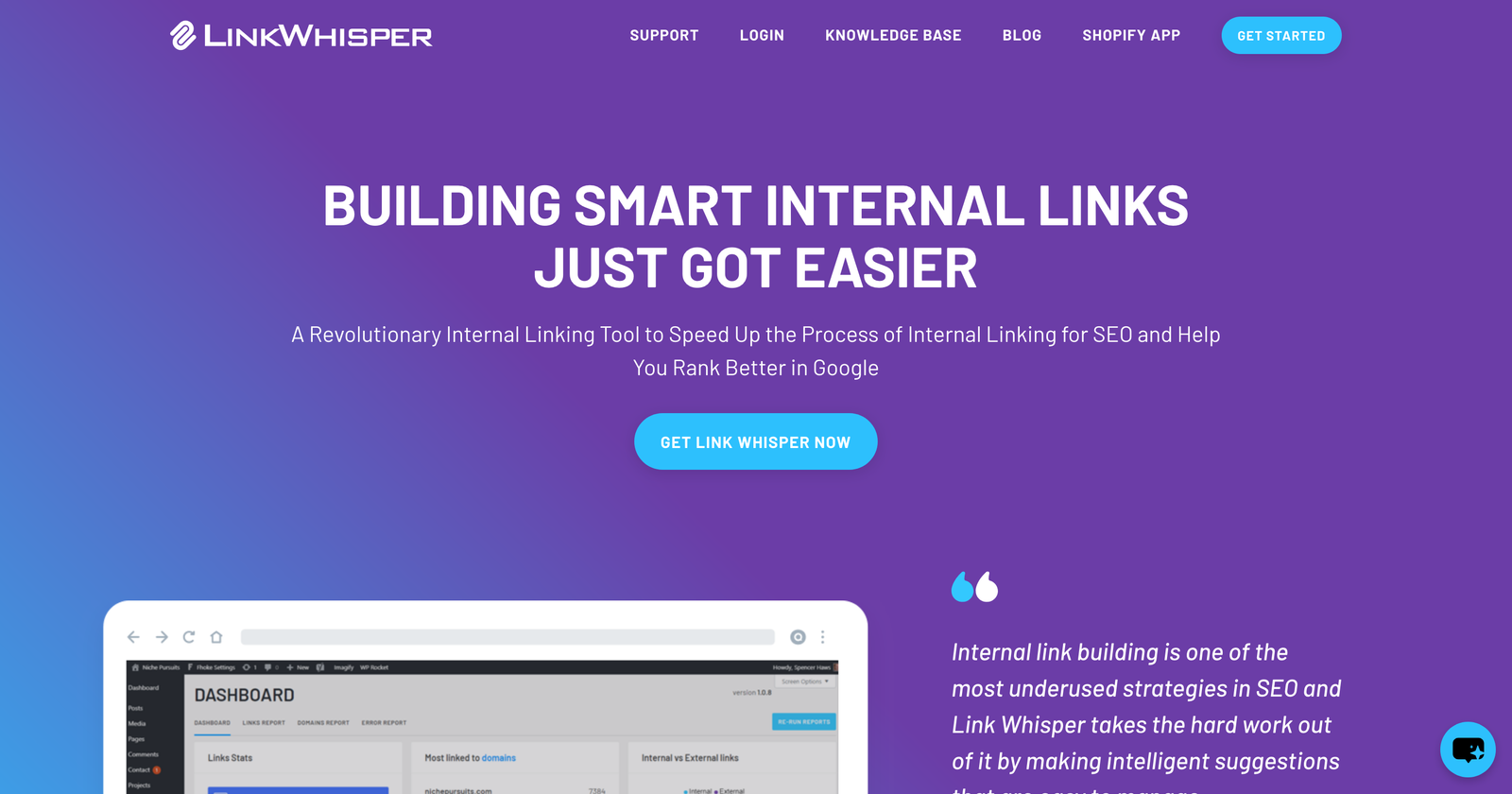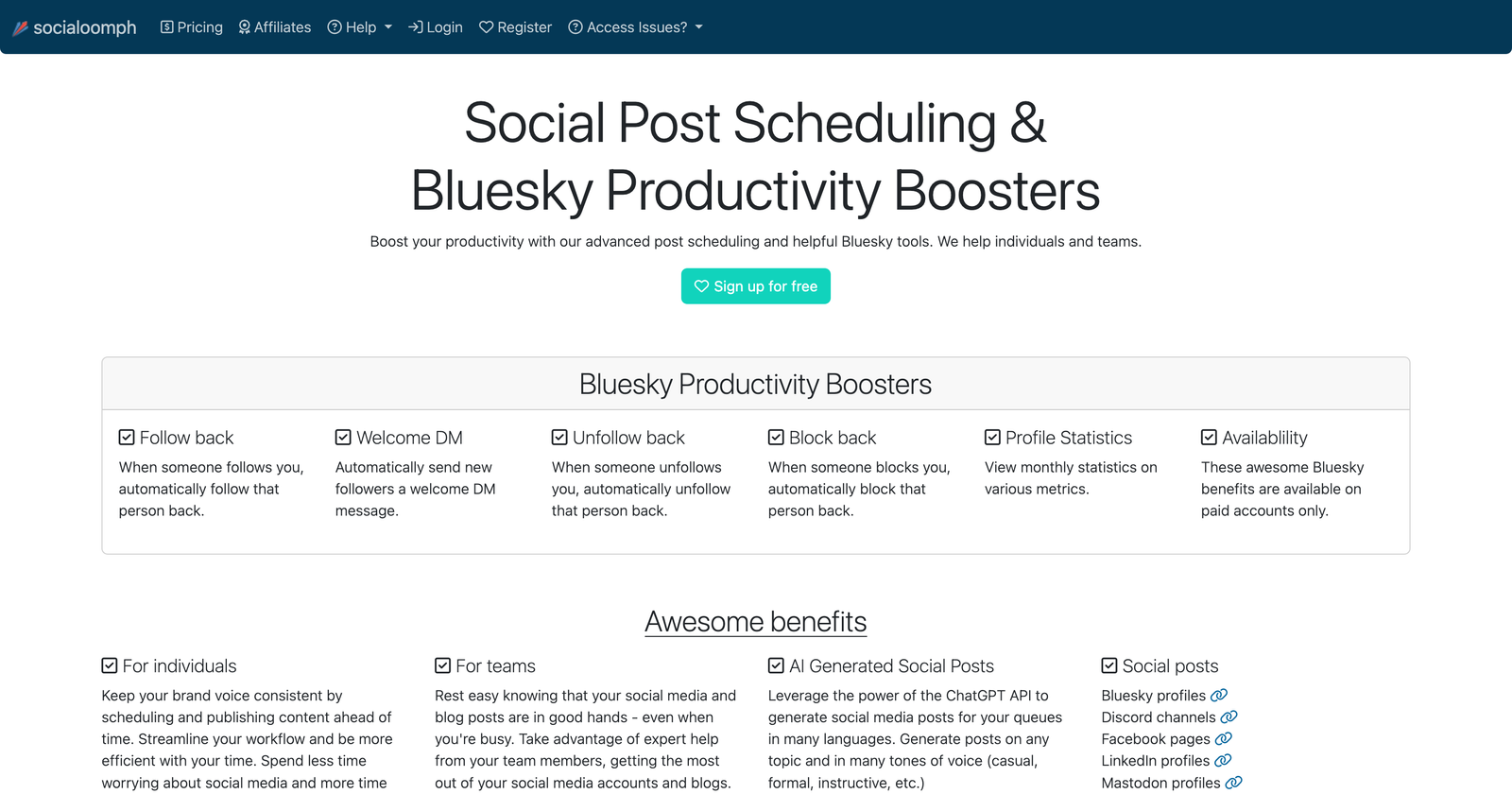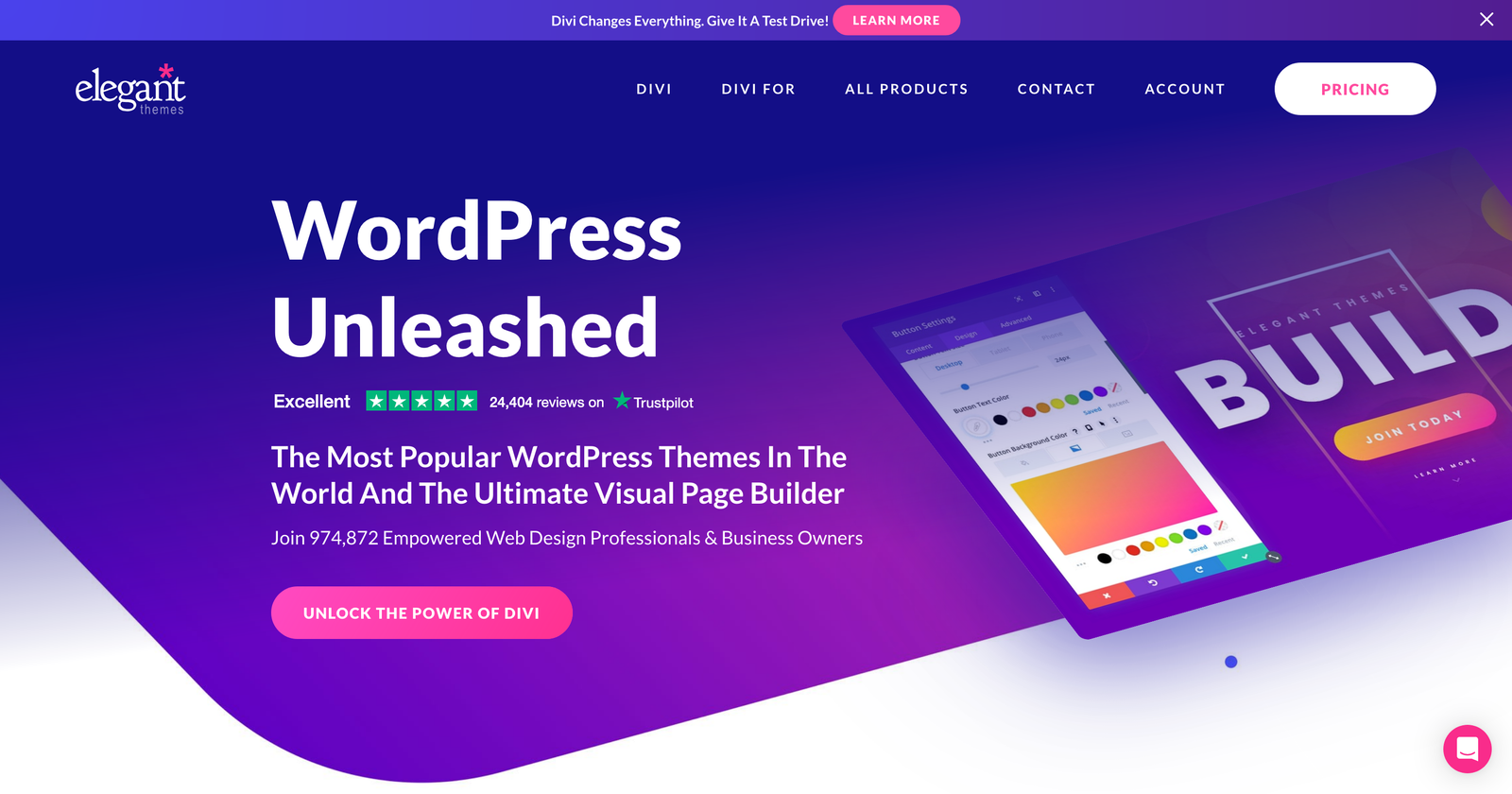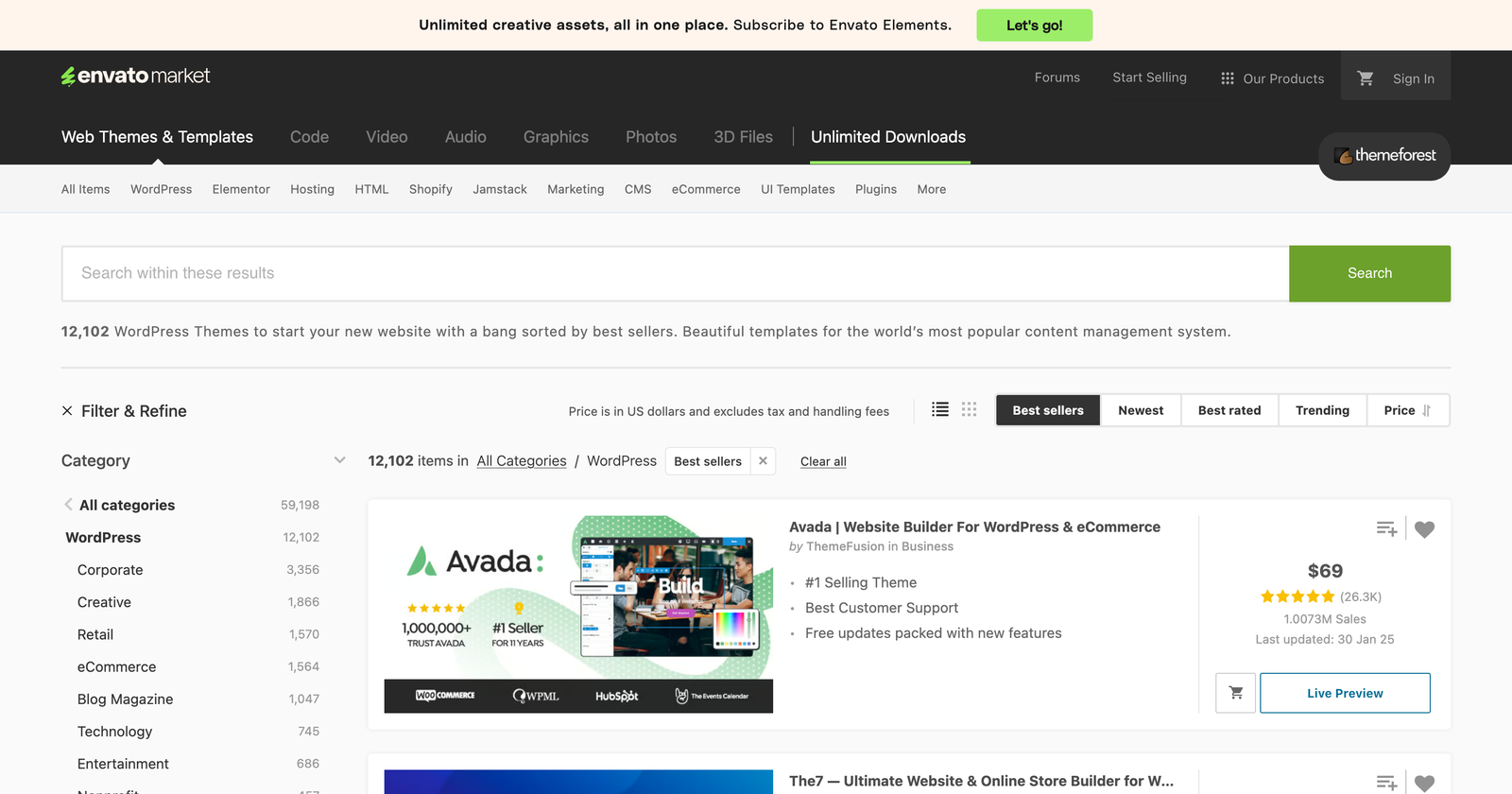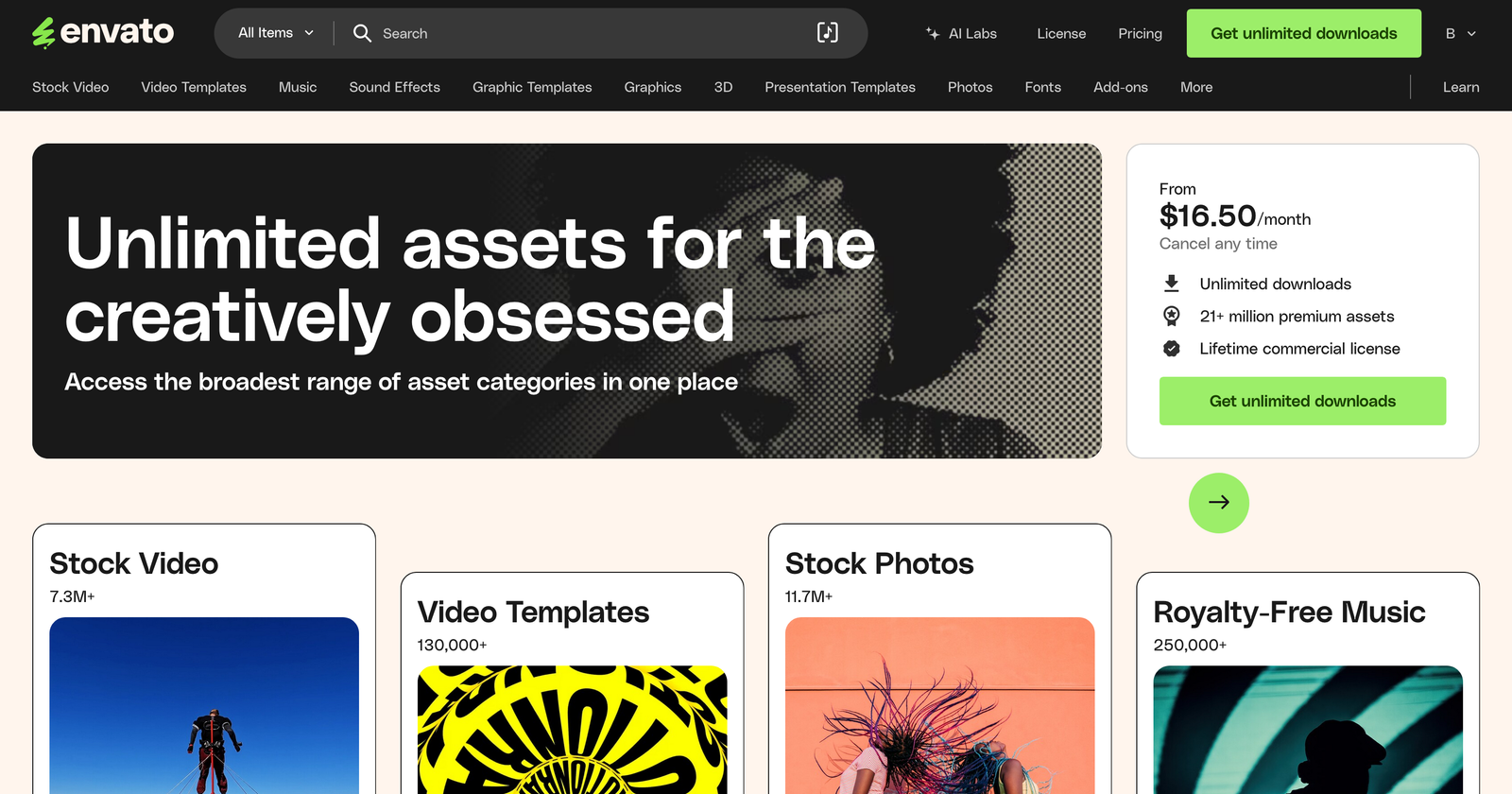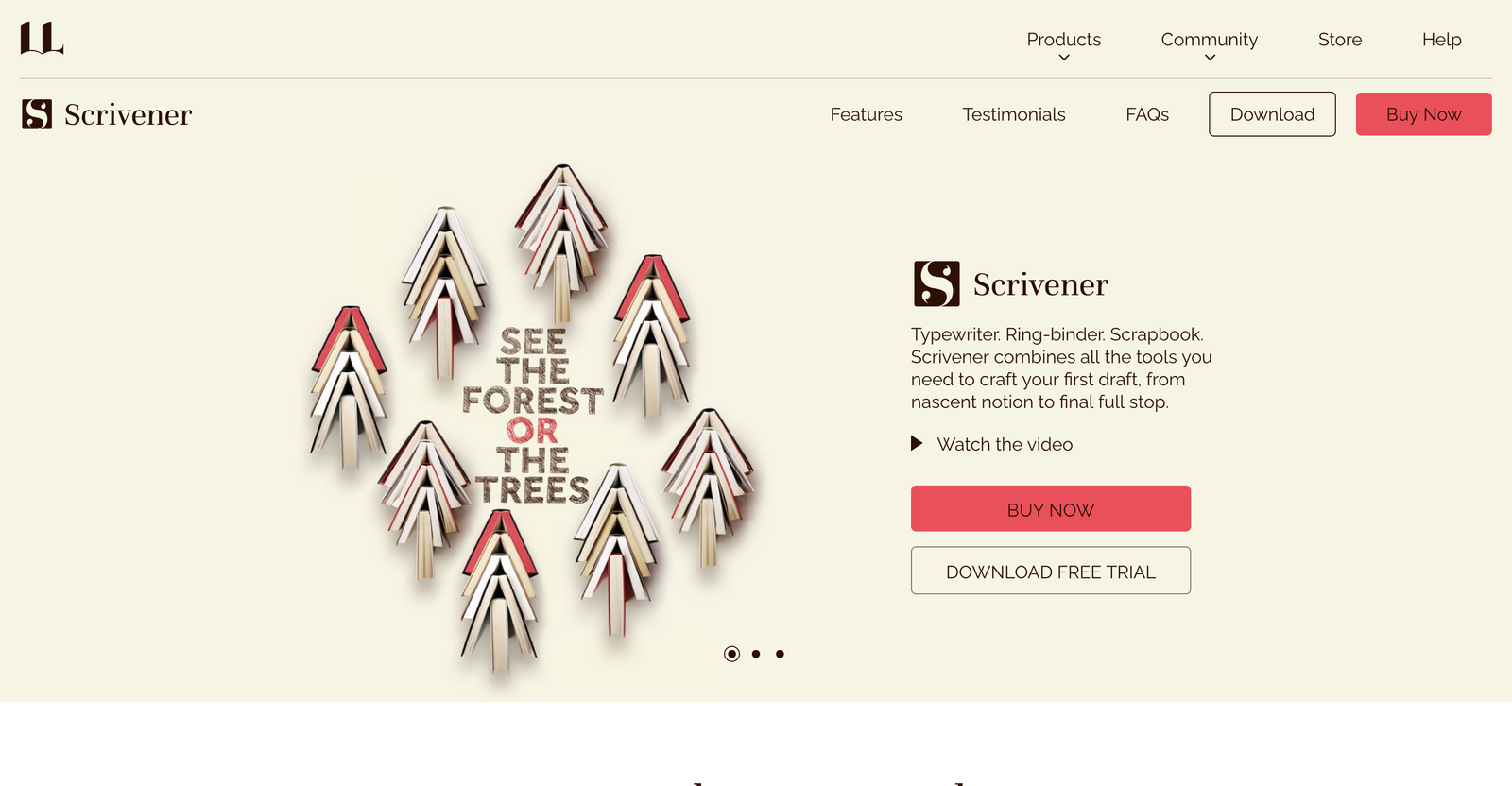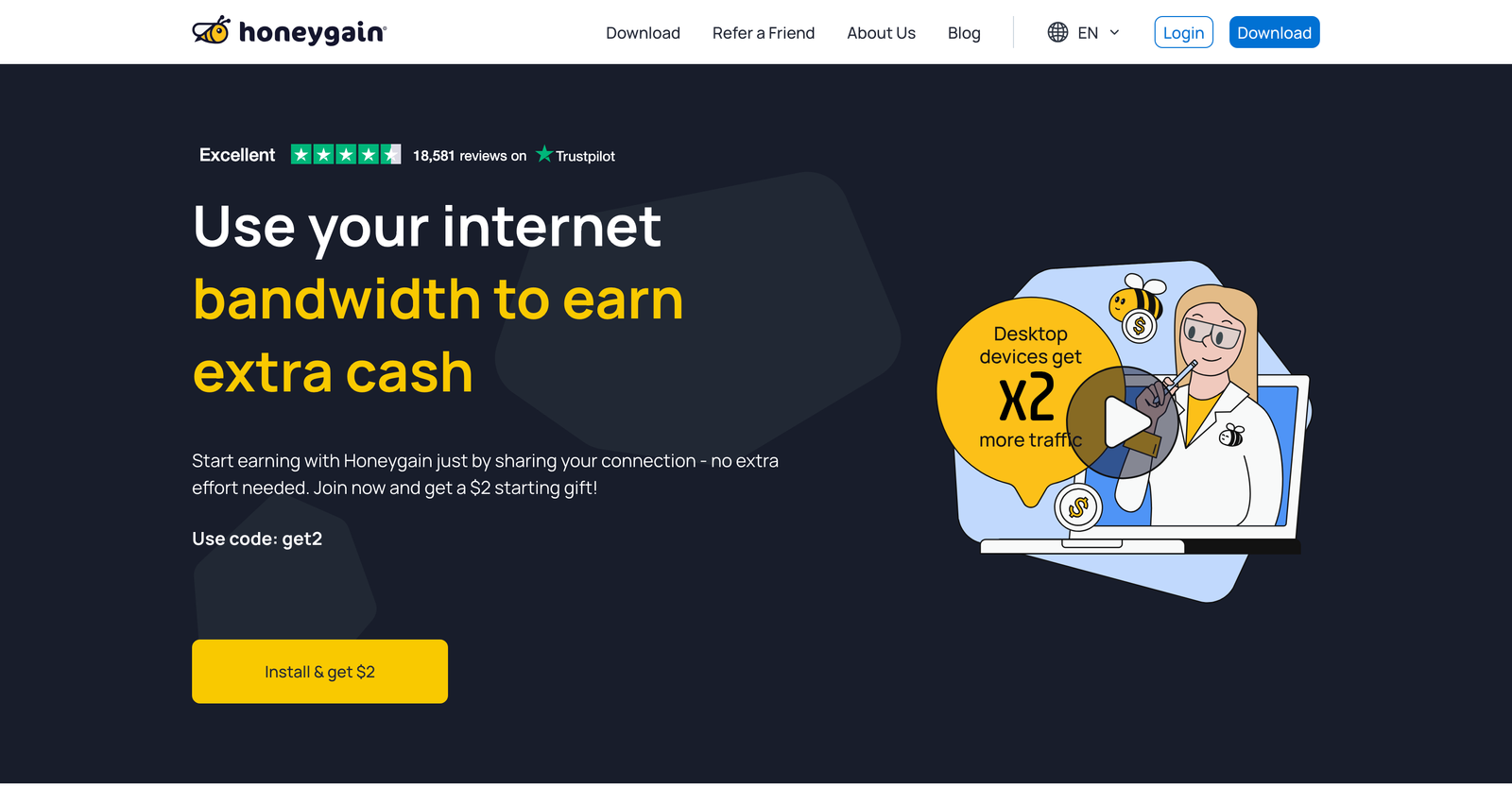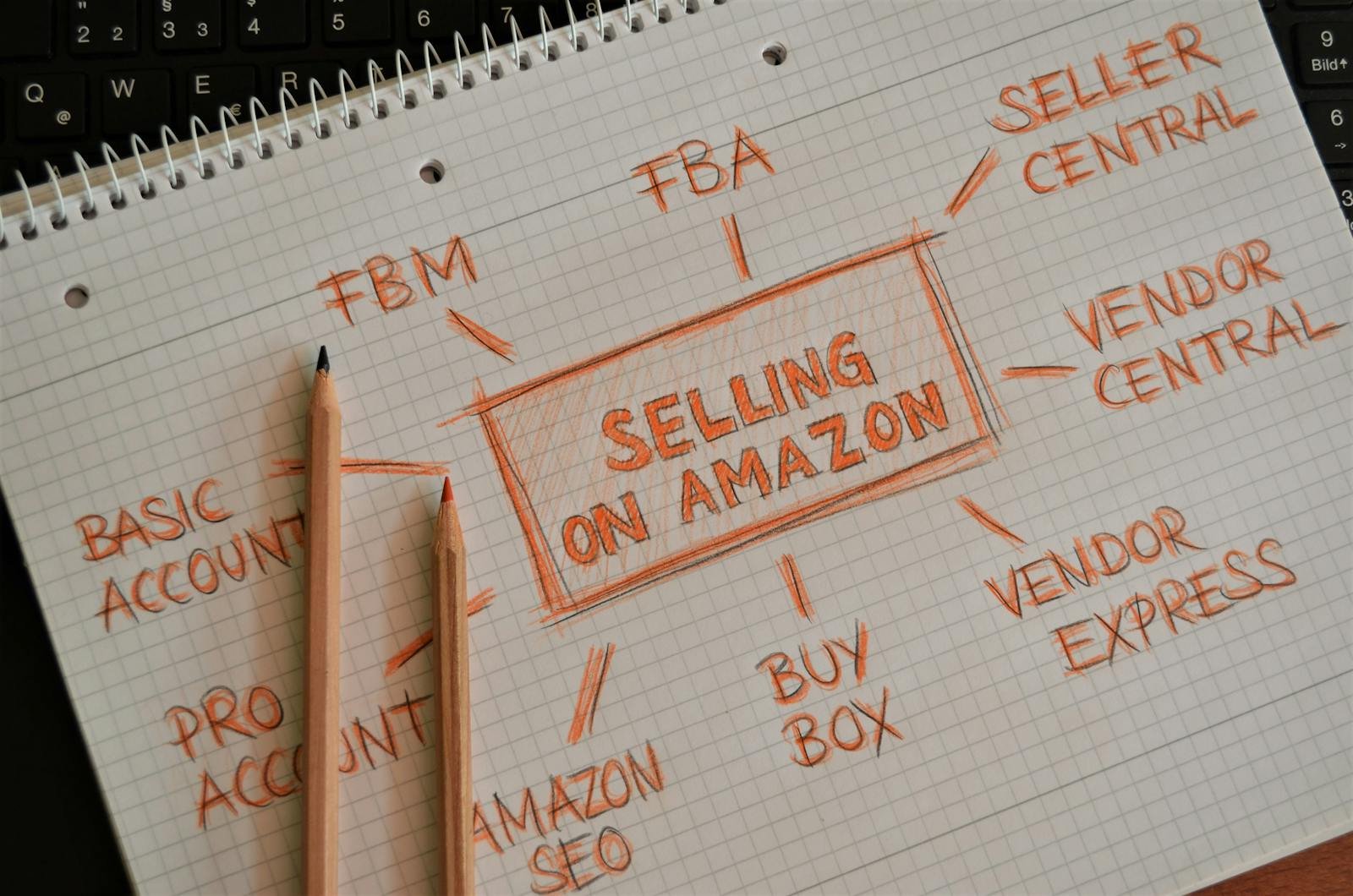Niche Website Business Insights
A low-cost, high-reward
online business
Build a niche website, drive traffic, and monetize through ads, affiliate marketing, or digital products to generate passive income.
Niche Website Business Insights
A low-cost, high-reward
online business
Build a niche website, drive traffic, and monetize through ads, affiliate marketing, or digital products to generate passive income.
Niche Website Business Insights
🏆 Overall Business Viability Score
💰 Profitability Score
🚀 Scalability Score
⏳ Time to Profitability Score
💸 Startup Cost Score
🛠️ Operational Complexity Score
📢 Marketing & Customer Acquisition Score
🤖 Automation & Passive Income Score
📈 Market Demand Score
⚠️ Competition Level Score
🌱 Sustainability & Longevity Score
📊 Revenue Stability Score
🏗️ Barrier to Entry Score
🎯 Target Market Size Score
🔧 Skill & Experience Requirement Score
📍 Location Flexibility Score
💼 Legal & Compliance Complexity Score
🔥 Economic Resilience Score
🔄 Recession Proof Score
🏁 Exit Strategy Score
Business Idea Overview:
A niche website business involves building a content-driven website that generates traffic and monetizes through ads, affiliate marketing, digital products, or memberships. It requires SEO, content creation, and marketing but offers long-term passive income potential with low startup costs and scalability.
📊 Earning Potential
⚠️ Earnings Disclaimer: Actual earnings vary based on niche, strategy, and execution. There is no guarantee of success, and results depend on effort, market conditions, and business management.
🛠️ Best Platforms & Tools
To build and manage niche websites, you’ll need a domain & hosting like Hostinger, an SEO-friendly CMS, and monetization tools. Popular platforms include SiteMake, WordPress, Webflow, and affiliate marketing programs.
⚠️ Biggest Challenge
The most significant challenge is generating consistent organic traffic and standing out in highly competitive niches. SEO ranking takes time, and Google algorithm updates can impact visibility.
💸 Startup Costs & Investment
Starting a niche website requires minimal upfront costs—typically $100-$500 for domain, hosting, and essential tools. However, investing in SEO, content creation, and marketing can accelerate growth.
📢 Customer Acquisition Strategy
Traffic generation is key. The best strategies include SEO, content marketing, social media promotion, and email marketing. Paid ads can be useful, but organic traffic drives higher long-term profitability.
📈 Ideal Business Model
A niche website can follow a recurring revenue model (subscriptions, memberships), passive income model (ads, affiliate marketing), or product-based model (digital products, courses).
⏳ Time to Profitability
It typically takes 6-12 months to see meaningful revenue, but once traffic builds, income can be highly passive and consistent. Fast-tracking growth requires aggressive SEO & marketing efforts.
🚀 Key to Scaling
Scaling requires diversifying traffic sources, expanding monetization methods, and creating additional sites in profitable niches. Automating content creation and outsourcing work can speed up growth.
🤖 Automation & Passive Income Potential
With SEO, ad revenue, and affiliate marketing, niche websites can become highly passive once traffic stabilizes. AI tools can automate content creation, while outsourcing can reduce workload.
View Automation Tools
🏁 Exit Strategy
Successful niche sites can be sold for 20-50x their monthly earnings on platforms like Flippa and Empire Flippers. A site earning $5,000 per month can sell for $100,000 – $250,000.
🌱 Sustainability & Longevity
Well-built niche sites with evergreen content can generate revenue for years. However, algorithm updates, competition, and monetization changes require ongoing adaptation.
🔄 Market Trends & Demand
The demand for authority niche sites is growing, with businesses and investors looking to acquire established websites for passive income or lead generation.
🆚 Competition Level
Competition varies by niche. Some topics (e.g., finance, health, tech) are highly saturated, while emerging or micro-niches have lower competition and faster growth potential.
Sign up for SEO Flow and start your keyword research today. SEOFlow.app
📍 Location Flexibility
This business is 100% remote-friendly and can be run from anywhere in the world, making it an ideal digital nomad or work-from-home opportunity.
Visit NomadWave’s Digital Nomad Community
🎯 Ideal Target Audience
- Bloggers & content creators
- Affiliate marketers
- Entrepreneurs seeking passive income
- Businesses looking for organic traffic & leads
🏗️ Operational Complexity
Starting a niche website is low-complexity—it primarily involves content creation, SEO, and marketing. The challenge comes with scaling, maintaining rankings, and adapting to changes.
🔧 Required Skills & Experience
No prior experience is needed, but SEO, content marketing, and monetization knowledge greatly improve success. Skills can be self-taught or outsourced.
💼 Legal & Compliance Considerations
Ensure FTC compliance for affiliate marketing and GDPR compliance for data privacy. Trademark checks are important before selecting a niche domain name.
📊 Best Monetization Strategies
- Affiliate marketing (Amazon Associates, private programs)
- Display ads (Google AdSense, Ezoic, Mediavine)
- Selling digital products or courses
- Sponsored content & partnerships
🔥 Recession & Economic Resilience
Niche websites are resilient in economic downturns if they focus on evergreen, high-demand topics like finance, health, and education.
💰 Earning Potential of a Niche Website Business
The earning potential of a niche website business varies based on factors like traffic, monetization strategies, and niche selection. A small site may generate $500 – $2,000 per month, while well-optimized authority sites can make $10,000 – $100,000+ per month.
🔹 Key Factors Influencing Earnings
1️⃣ Traffic Volume – Higher traffic = higher income. Organic search traffic (SEO-driven) is the most profitable and cost-effective.
2️⃣ Monetization Model – Affiliate marketing, display ads, selling digital products, and sponsorships all impact earnings.
3️⃣ Niche Selection – Competitive niches (finance, health, tech) often yield higher earnings, but lower-competition niches can grow steadily over time.
4️⃣ SEO & Content Strategy – Ranking high on Google leads to consistent, passive income from multiple revenue streams.
💰 Income Breakdown by Monetization Method
✔️ Affiliate Marketing: $5 – $200 per sale (depends on commission structure).
✔️ Display Ads (Google AdSense, Ezoic, Mediavine): $5 – $50 per 1,000 page views (RPM varies by niche).
✔️ Selling Digital Products: $20 – $500 per sale (high-profit margins).
✔️ Sponsored Content: $100 – $5,000 per sponsored post (depends on site authority & niche).
✔️ Selling the Website: A niche site can sell for 20-50x its monthly earnings (a site making $5,000/month could sell for $100,000 – $250,000).
📌 Realistic Growth Timeline
✅ 0-6 months: Content creation, SEO optimization, low to no earnings.
✅ 6-12 months: Organic traffic starts growing, making $500 – $2,000/month.
✅ 12-24 months: Established traffic, potential for $5,000 – $10,000/month.
✅ 2+ years: Scalable and possibly 6-figure annual revenue or site resale.
⚠️ Earnings Disclaimer: Actual earnings vary based on niche, strategy, and execution. There is no guarantee of success, and results depend on effort, market conditions, and business management.
📈 Best Business Models for a Niche Website Business
A niche website business can be monetized in multiple ways, allowing entrepreneurs to choose the best model based on their goals, niche, and audience. Below are the most profitable and scalable business models for niche websites.
1️⃣ Affiliate Marketing (Low Cost, High Profit Potential)
✔ How It Works: Promote products/services via affiliate links and earn commissions for sales.
✔ Best For: Review sites, comparison websites, product roundups.
✔ Profit Potential: $5 – $500 per sale (depending on commission structure).
✔ Scalability: High—multiple affiliate partnerships can create diverse revenue streams.
✔ Example Niches: Tech gadgets, finance, health supplements, SaaS software.
💡 Why It’s Profitable: Minimal upfront costs, passive income potential, and no need for inventory or customer service.
2️⃣ Display Advertising (Passive, Scalable Model)
✔ How It Works: Earn revenue by displaying banner ads via Google AdSense, Ezoic, or Mediavine.
✔ Best For: High-traffic blogs, viral content sites, news aggregators.
✔ Profit Potential: $5 – $50+ per 1,000 visitors (RPM varies by niche).
✔ Scalability: High—more traffic = higher ad revenue.
✔ Example Niches: DIY, entertainment, recipe sites, travel blogs.
💡 Why It’s Profitable: Completely passive once the site ranks well on Google—no selling required.
3️⃣ Selling Digital Products (High Margins, Automated Income)
✔ How It Works: Sell ebooks, templates, printables, online courses, stock photos, or guides.
✔ Best For: Niche websites with engaged audiences.
✔ Profit Potential: $20 – $500 per sale (100% profit margin).
✔ Scalability: High—can automate sales through an online store or membership site.
✔ Example Niches: Productivity templates, resume designs, online business guides.
💡 Why It’s Profitable: Digital products require no inventory and can generate recurring revenue.
4️⃣ Subscription & Membership Sites (Recurring Revenue)
✔ How It Works: Charge users a monthly or annual fee for exclusive content, courses, or community access.
✔ Best For: Expert-led niches, authority blogs, private forums.
✔ Profit Potential: $10 – $100+ per member/month.
✔ Scalability: Medium—needs consistent content updates to retain members.
✔ Example Niches: Investing communities, fitness programs, private coaching groups.
💡 Why It’s Profitable: Predictable monthly revenue and stronger customer retention.
5️⃣ Sponsored Content & Brand Partnerships
✔ How It Works: Get paid by brands to write product reviews, create sponsored blog posts, or feature their services.
✔ Best For: Authority blogs, niche influencers, product review sites.
✔ Profit Potential: $100 – $5,000+ per sponsored post.
✔ Scalability: Medium—depends on brand partnerships and traffic volume.
✔ Example Niches: Travel, beauty, home improvement, tech reviews.
💡 Why It’s Profitable: Works well with existing content monetization strategies (like affiliate marketing).
📌 Best Business Model for You?
✔ **If you want **passive income → Affiliate Marketing + Display Ads.
✔ **If you want high profit margins → Selling Digital Products.
✔ **If you want recurring income → Subscription & Membership Models.
✔ **If you want to work with brands → Sponsored Content & Brand Deals.
🚀 Final Thought:
The best approach is to combine multiple monetization models—this diversifies income and increases long-term stability. A niche website business can evolve into a multi-income stream asset with the right strategy. 🚀
Get JotPro, the intuitive AI writing tool with over 50 templates, and countless features like Speech-to-Text and Text-to-Speech. Sign Up Free
🔄 Conversion Tactics for a Niche Website Business
Driving traffic is only half the battle—the key to a profitable niche website is converting visitors into buyers, subscribers, or leads. The right conversion tactics ensure that your audience engages, trusts, and ultimately takes action on your site.
1️⃣ Optimized Call-to-Actions (CTAs) (Directs Users to Take Action)
🔹 How It Works:
- Place clear, compelling CTAs in blog posts, landing pages, and product pages.
- Use action-driven words like “Download Now,” “Get Started,” or “Claim Your Discount.”
- Add visual contrast (buttons, bold text, or arrows) to draw attention.
🔹 Best For:
✅ Affiliate links, email sign-ups, product purchases.
🔹 Why It Works:
💰 A strong CTA increases conversions by guiding visitors toward the next step.
2️⃣ High-Converting Landing Pages (Focused Sales Funnels)
🔹 How It Works:
- Create standalone landing pages for specific offers, products, or lead magnets.
- Remove distractions (navigation bars, unnecessary links) to keep focus.
- Use persuasive headlines, trust signals, and testimonials to boost credibility.
🔹 Best For:
✅ Digital product sales, affiliate promotions, email list building.
🔹 Why It Works:
💰 Landing pages with a single goal convert higher than regular web pages.
3️⃣ Exit-Intent Popups (Capture Leads Before They Leave)
🔹 How It Works:
- Detect when a visitor is about to leave the page and trigger a last-minute offer.
- Offer a discount, free guide, or bonus content in exchange for their email.
- Use a simple, no-obligation CTA like “Wait! Get 10% Off Before You Go.”
🔹 Best For:
✅ Retaining potential customers, collecting emails, reducing bounce rates.
🔹 Why It Works:
💰 Prevents lost sales by re-engaging visitors at the last second.
4️⃣ Trust Signals & Social Proof (Builds Credibility)
🔹 How It Works:
- Showcase customer reviews, testimonials, or case studies.
- Display trust badges (secure payment icons, money-back guarantees, or partner logos).
- Feature real customer success stories to create emotional connection.
🔹 Best For:
✅ Increasing sales, reducing hesitation, building authority.
🔹 Why It Works:
💰 Visitors are more likely to convert when they see proof that others trust your brand.
5️⃣ Fast & Mobile-Friendly Experience (Reduces Drop-Off Rates)
🔹 How It Works:
- Optimize page speed to reduce bounce rates and improve user experience.
- Ensure mobile responsiveness so visitors can browse seamlessly on all devices.
- Use compressed images and lightweight code for faster load times.
🔹 Best For:
✅ Retaining visitors, boosting engagement, improving SEO rankings.
🔹 Why It Works:
💰 Fast-loading, mobile-friendly pages lead to higher conversions and better retention.
6️⃣ Lead Magnets & Email Capture (Builds Long-Term Relationships)
🔹 How It Works:
- Offer free downloadable guides, checklists, or templates in exchange for emails.
- Use drip email sequences to nurture leads and convert them into buyers.
- Provide exclusive discounts or insider access to encourage sign-ups.
🔹 Best For:
✅ Growing an audience, increasing repeat traffic, long-term monetization.
🔹 Why It Works:
💰 Email subscribers convert at a higher rate than cold website visitors.
7️⃣ A/B Testing & Conversion Optimization (Refines What Works Best)
🔹 How It Works:
- Test different headlines, CTAs, button colors, or layouts to find what converts best.
- Track heatmaps & analytics to see where visitors drop off.
- Continuously optimize and tweak based on real data.
🔹 Best For:
✅ Improving user experience, increasing ROI, scaling conversions.
🔹 Why It Works:
💰 Even small improvements in conversion rates can significantly increase revenue.
📌 Conversion Tactics Comparison Table
| Conversion Tactic | Best For | Why It Works |
|---|---|---|
| Optimized CTAs | Directing users to take action | Increases click-through rates & conversions |
| High-Converting Landing Pages | Focused sales & lead generation | Removes distractions & improves focus |
| Exit-Intent Popups | Retaining potential customers | Prevents lost sales by offering last-minute deals |
| Trust Signals & Social Proof | Building credibility | Reduces hesitation & builds authority |
| Fast & Mobile-Friendly Experience | Improving user experience | Reduces bounce rates & increases engagement |
| Lead Magnets & Email Capture | Growing long-term audience | Converts visitors into loyal subscribers |
| A/B Testing & Conversion Optimization | Increasing ROI | Data-driven decisions improve performance |
🚀 Final Thought: Mastering Conversions for a Niche Website
✅ Best for Immediate Conversions: Optimized CTAs & High-Converting Landing Pages.
✅ Best for Long-Term Growth: Email Marketing & Lead Magnets.
✅ Best for Reducing Drop-Offs: Exit-Intent Popups & Faster Page Speed.
📌 Final Verdict:
A well-optimized conversion strategy can turn visitors into loyal customers while maximizing revenue from ads, affiliate links, digital products, and subscriptions. By continuously refining and testing, a niche website can scale into a high-converting, profitable business. 🚀
💰 Most Profitable Niches for a Niche Website Business
Choosing the right niche is the key to building a successful niche website business. Some niches have higher profit margins, stronger demand, and better long-term growth potential. Below are the most profitable niches based on monetization potential, audience demand, and competition level.
1️⃣ Personal Finance & Investing (High Commissions, Recurring Revenue)
🔹 Why It’s Profitable:
- High-paying affiliate programs for credit cards, banking, investment platforms, and insurance.
- Huge demand for financial literacy, wealth building, and passive income strategies.
- Potential to monetize with ads, online courses, consulting, and affiliate partnerships.
🔹 Best Monetization Models:
✅ Affiliate marketing (banks, trading platforms, credit card offers).
✅ Subscription models (exclusive investment reports, premium memberships).
✅ High-ticket coaching & consulting.
🔹 Profitability Score: 🔥🔥🔥🔥🔥 (Very High)
2️⃣ Health, Wellness, & Fitness (Evergreen Demand, Product-Focused Monetization)
🔹 Why It’s Profitable:
- Continuous demand for diet plans, fitness routines, supplements, and holistic health.
- High eCommerce potential through affiliate marketing, dropshipping, or direct product sales.
- Evergreen niche with recurring revenue potential from fitness apps & programs.
🔹 Best Monetization Models:
✅ Affiliate marketing (supplements, meal plans, fitness gear).
✅ Digital products (ebooks, online courses, subscription-based fitness programs).
✅ Membership sites (coaching, exclusive training).
🔹 Profitability Score: 🔥🔥🔥🔥 (High)
3️⃣ Tech, Gadgets, & AI Tools (High Affiliate Commissions, Innovation-Driven)
🔹 Why It’s Profitable:
- Huge market for tech reviews, gadget comparisons, and AI software guides.
- High-ticket affiliate commissions for software subscriptions & gadgets.
- Continuous innovation keeps content fresh & ever-evolving.
🔹 Best Monetization Models:
✅ Affiliate marketing (software, AI tools, SaaS platforms, gadgets).
✅ Sponsored content (brand collaborations, paid product reviews).
✅ Digital downloads (templates, automation tools, tech guides).
🔹 Profitability Score: 🔥🔥🔥🔥🔥 (Very High)
4️⃣ DIY & Home Improvement (High Pinterest & YouTube Traffic, Product-Focused)
🔹 Why It’s Profitable:
- Strong SEO & Pinterest potential for organic traffic.
- Monetize with DIY courses, woodworking plans, and tool recommendations.
- Home improvement is a high-spending niche with strong consumer interest.
🔹 Best Monetization Models:
✅ Affiliate marketing (home decor, furniture, power tools, DIY kits).
✅ Ecommerce & printables (home decor plans, woodworking blueprints).
✅ Advertising & sponsorships (home improvement brands, tool manufacturers).
🔹 Profitability Score: 🔥🔥🔥🔥 (High)
5️⃣ Education & Online Learning (Digital Products & Recurring Revenue)
🔹 Why It’s Profitable:
- Online courses & skill-based learning are in high demand.
- Strong potential for membership sites, coaching, and digital downloads.
- Passive income through evergreen courses, templates, and tutoring programs.
🔹 Best Monetization Models:
✅ Online courses & eBooks (self-paced learning).
✅ Membership sites (premium tutorials, coaching).
✅ Affiliate marketing (ed-tech platforms, study materials).
🔹 Profitability Score: 🔥🔥🔥🔥🔥 (Very High)
6️⃣ Digital Marketing & Business Growth (High-Demand for Services & Tools)
🔹 Why It’s Profitable:
- Businesses & solopreneurs are constantly looking for growth strategies.
- Monetize with SEO, social media marketing, and automation services.
- High-paying affiliate programs for marketing tools and software.
🔹 Best Monetization Models:
✅ Affiliate marketing (SEO tools, marketing platforms, SaaS).
✅ Freelancing & agency services (consulting, marketing audits).
✅ Membership sites (exclusive growth hacks, community).
🔹 Profitability Score: 🔥🔥🔥🔥 (High)
7️⃣ Travel & Remote Work (Affiliate-Driven, Experience-Based Monetization)
🔹 Why It’s Profitable:
- Growing interest in digital nomad lifestyles, remote work, and travel hacking.
- Monetize through travel gear recommendations, booking platforms, and courses.
- Strong brand partnerships & sponsorship potential.
🔹 Best Monetization Models:
✅ Affiliate marketing (hotels, flights, travel insurance, gear).
✅ Digital products (travel guides, remote work courses).
✅ Sponsorships (travel brands, co-living spaces).
🔹 Profitability Score: 🔥🔥🔥 (Moderate-High)
8️⃣ Gaming & eSports (Massive Audience, High Engagement)
🔹 Why It’s Profitable:
- Large, engaged audience across Twitch, YouTube, and gaming blogs.
- Monetize with gaming gear recommendations, guides, and paid content.
- High-ticket affiliate programs for gaming PCs, accessories, and in-game purchases.
🔹 Best Monetization Models:
✅ Affiliate marketing (gaming gear, streaming tools).
✅ Sponsorships (brands, eSports teams).
✅ Digital products (strategy guides, private coaching).
🔹 Profitability Score: 🔥🔥🔥🔥 (High)
📌 Niche Profitability Comparison Table
| Niche | Best Monetization Model | Profitability Score |
|---|---|---|
| Personal Finance & Investing | Affiliate marketing, consulting, high-ticket products | 🔥🔥🔥🔥🔥 |
| Health, Wellness, & Fitness | Subscriptions, digital products, coaching | 🔥🔥🔥🔥 |
| Tech & AI Tools | Software affiliate programs, product reviews | 🔥🔥🔥🔥🔥 |
| DIY & Home Improvement | Affiliate sales, printables, YouTube ads | 🔥🔥🔥🔥 |
| Education & Online Learning | Online courses, membership sites, affiliate programs | 🔥🔥🔥🔥🔥 |
| Digital Marketing & Business Growth | Consulting, SaaS affiliate marketing, lead generation | 🔥🔥🔥🔥 |
| Travel & Remote Work | Travel affiliate programs, digital products | 🔥🔥🔥 |
| Gaming & eSports | Sponsorships, affiliate marketing, content monetization | 🔥🔥🔥🔥 |
🚀 Final Thought: Choosing the Most Profitable Niche
✅ Best for Passive Income: Personal finance, investing, tech, and AI tools.
✅ Best for Recurring Revenue: Health & fitness, education, digital marketing.
✅ Best for Fast Monetization: Gaming, DIY, home improvement.
📌 Final Verdict:
The most profitable niches are evergreen, scalable, and have high-ticket monetization opportunities. Choosing the right niche combined with SEO, content marketing, and digital products will allow you to build a long-term, income-generating niche website. 🚀
🏆 Niche Website Business vs. Other Business Models
A niche website business is a highly scalable, low-cost, and passive-income-friendly business model. However, it differs significantly from other business types in terms of investment, scalability, automation potential, and income stability. Below is a comparison of how a niche website business stacks up against eCommerce, service-based businesses, SaaS, and traditional brick-and-mortar businesses.
1️⃣ Niche Website vs. eCommerce (Dropshipping, Print-on-Demand, Physical Products)
🔹 Key Differences:
- Niche websites focus on content, digital products, and affiliate marketing, while eCommerce businesses rely on product inventory and shipping.
- Lower overhead costs compared to eCommerce, which requires product sourcing, fulfillment, and customer service.
- Scalability: Niche websites can scale passively with SEO, whereas eCommerce requires constant order fulfillment and inventory management.
🔹 Which One is Better?
✅ Choose a niche website if you prefer low-cost, passive revenue through content & digital monetization.
✅ Choose eCommerce if you enjoy selling physical products and managing supply chains.
2️⃣ Niche Website vs. Service-Based Business (Freelancing, Consulting, Agencies)
🔹 Key Differences:
- Service-based businesses rely on direct client work, requiring time in exchange for money (active income).
- A niche website generates passive income, requiring front-loaded effort with long-term rewards.
- Scaling a service business requires hiring more staff or increasing prices, while a niche website scales infinitely with content.
🔹 Which One is Better?
✅ Choose a niche website if you want passive income and location independence.
✅ Choose a service-based business if you enjoy working with clients and offering specialized skills.
3️⃣ Niche Website vs. SaaS (Software as a Service) & Digital Product Businesses
🔹 Key Differences:
- SaaS requires product development, ongoing maintenance, and customer support, while niche websites require content creation and SEO.
- SaaS is high-risk, high-reward, requiring technical expertise and funding, while a niche website can start with little investment.
- Scalability: Both are highly scalable, but SaaS requires continuous innovation, whereas a niche website thrives on evergreen content.
🔹 Which One is Better?
✅ Choose a niche website if you want a low-maintenance, high-margin digital business.
✅ Choose SaaS if you have a strong technical background and want to build a software-driven company.
4️⃣ Niche Website vs. Traditional Brick-and-Mortar Business
🔹 Key Differences:
- A brick-and-mortar business requires physical location, staff, and inventory, while a niche website can be run 100% online.
- Traditional businesses have higher startup costs, whereas a niche website can be launched with minimal investment.
- Revenue stability: Traditional businesses have steady cash flow, whereas niche websites can have fluctuating traffic and income.
🔹 Which One is Better?
✅ Choose a niche website if you want low overhead and location freedom.
✅ Choose a brick-and-mortar business if you prefer physical customer interactions and local business operations.
📊 Business Model Comparison Table
| Business Model | Startup Cost | Scalability | Passive Income Potential | Maintenance | Best For |
|---|---|---|---|---|---|
| Niche Website | Low | High | Very High | Low | Content creators, bloggers, affiliate marketers |
| eCommerce (Dropshipping, Print-on-Demand) | Medium | High | Medium | Medium-High | Product sellers, online stores |
| Service-Based Business | Low-Medium | Low-Medium | Low | High | Freelancers, agencies, consultants |
| SaaS & Digital Products | High | Very High | High | Medium-High | Tech entrepreneurs, software developers |
| Brick-and-Mortar Business | High | Low-Medium | Low | High | Local business owners, retail stores |
🚀 Final Thought: Why Niche Websites Stand Out
✅ Best for Passive Income & Scalability: Niche websites & SaaS businesses.
✅ Best for Quick Revenue: Service-based businesses & traditional businesses.
✅ Best for Long-Term Growth: Niche websites, SaaS, and eCommerce.
📌 Final Verdict:
A niche website business is one of the best online models for passive income, low startup costs, and high scalability. Unlike other models, it requires minimal ongoing effort, making it an excellent choice for entrepreneurs looking for long-term, hands-off income streams. 🚀
🚀 Future Trends in the Niche Website Business
The niche website business is evolving rapidly with technology, AI, and shifting consumer behaviors shaping its future. Entrepreneurs who adapt to these trends will stay ahead of the competition and maximize traffic, monetization, and scalability. Here’s what to expect in the coming years:
1️⃣ AI-Powered Content Creation & SEO Automation
🔹 Why It’s Important:
- AI tools are revolutionizing content creation, keyword research, and on-page SEO optimization.
- Websites leveraging AI-powered content rank faster, attract more organic traffic, and reduce content production costs.
- AI will personalize user experiences, increasing engagement and conversions.
🔹 Future Prediction:
✅ AI-driven blogging platforms will automate content writing, optimizing it for search engines in real-time.
✅ AI-powered SEO tools will improve ranking strategies and automate site audits.
2️⃣ Voice Search & Conversational AI Optimization
🔹 Why It’s Important:
- More users are searching through voice assistants (Siri, Alexa, Google Assistant).
- Conversational AI (chatbots & voice-activated content) will make niche websites more interactive & engaging.
🔹 Future Prediction:
✅ Optimizing content for voice search (long-tail, question-based queries) will become essential.
✅ Voice AI will be integrated into niche sites to provide automated, real-time user support.
3️⃣ Micro-Niches & Hyper-Specific Content Will Dominate
🔹 Why It’s Important:
- Broad niches are becoming more competitive, making micro-niche targeting more profitable.
- Sites focusing on ultra-specific, underserved topics will rank higher and convert better.
🔹 Future Prediction:
✅ Micro-niche sites (e.g., “AI tools for interior designers”) will outperform generic sites.
✅ Authority-driven, highly focused websites will generate more trust and conversions.
4️⃣ Google Algorithm Updates Will Favor User Experience & Topical Authority
🔹 Why It’s Important:
- Search engine algorithms are prioritizing authority, credibility, and user experience.
- Niche sites relying on thin content or outdated SEO tactics will struggle.
🔹 Future Prediction:
✅ Long-form, research-backed content will dominate rankings over short, keyword-stuffed posts.
✅ Topical authority sites (deeply covering a niche) will outperform generalist websites.
5️⃣ Video Content & Visual Search Growth
🔹 Why It’s Important:
- Video is now the most consumed type of online content.
- Visual search (Google Lens, Pinterest Lens) is driving traffic to image-heavy & infographic-rich sites.
🔹 Future Prediction:
✅ Websites with embedded videos & interactive visuals will rank higher in search results.
✅ SEO will shift towards video-first indexing, making YouTube integration essential.
6️⃣ Increased Demand for Subscription-Based & Premium Content
🔹 Why It’s Important:
- Consumers are becoming comfortable paying for high-quality digital content (courses, memberships, exclusive reports).
- Websites that offer premium content & gated communities will build loyal audiences & recurring revenue.
🔹 Future Prediction:
✅ Niche sites will shift toward paid communities & premium resources.
✅ Email newsletters & private membership sites will become a primary monetization method.
7️⃣ Diversification of Traffic Sources (Less Reliance on Google)
🔹 Why It’s Important:
- Google algorithm changes can make or break websites overnight.
- Niche site owners are diversifying traffic through Pinterest, YouTube, Reddit, and Quora.
🔹 Future Prediction:
✅ Social media, video platforms, and alternative search engines will drive more traffic.
✅ Websites with multi-platform strategies (SEO + social + email) will future-proof their business.
8️⃣ More Monetization Opportunities Beyond Ads & Affiliates
🔹 Why It’s Important:
- Over-reliance on Google AdSense & Amazon Associates is risky due to policy changes & commission cuts.
- New revenue models (paid newsletters, brand sponsorships, licensing content) are emerging.
🔹 Future Prediction:
✅ Websites will monetize through multiple streams, including brand partnerships & premium content.
✅ Affiliate marketing will shift towards high-ticket, subscription-based commissions.
📌 Future-Proofing Your Niche Website Business
To stay ahead of the competition, niche site owners must:
✅ Integrate AI & automation tools for content, SEO, and marketing.
✅ Focus on hyper-specific micro-niches to dominate underserved markets.
✅ Leverage video, interactive visuals, and voice search optimization.
✅ Diversify traffic sources beyond Google (Pinterest, YouTube, social media).
✅ Expand monetization methods (memberships, exclusive content, premium newsletters).
📌 Final Thought:
The future of niche websites is shifting towards AI-driven, multimedia-rich, and authority-based content. Entrepreneurs who embrace automation, voice search, video SEO, and diversified revenue models will build long-lasting, profitable digital assets. 🚀
Updates on
Niche Website Business
Get notified on new updates with the
Niche Website Business ecosystem.
Sponsor
Reviews of Niche Website Business Landscape
https://www.gezesrkog.com/
Dear,
I hope this email finds you well. I’m excited to introduce you to Cargoholidays.com, your gateway to a unique and adventurous way of exploring the world through cargo ship travel. As a leading cargo travel agency, we specialize in creating unforgettable journeys that offer a fresh perspective on travel and adventure.
At CargoHolidays, we understand that traditional travel experiences may not be for everyone, and that’s why we offer an alternative that’s both enriching and fascinating. Our cargo ship travel services open up a world of possibilities for those seeking a truly authentic and immersive travel experience.
I invite you to explore our website at CargoHolidays Website to browse our available routes at cargoholidays.com, destinations, and testimonials from fellow adventurers who have experienced the magic of cargo ship travel with us.
If you’re ready to embark on a one-of-a-kind journey or have any questions about our services, please don’t hesitate to contact us at contact@cargoholidays.com. Our dedicated team is here to assist you in planning your cargo ship adventure, providing insights, and addressing any queries you may have.
Safe travels and warm regards,





